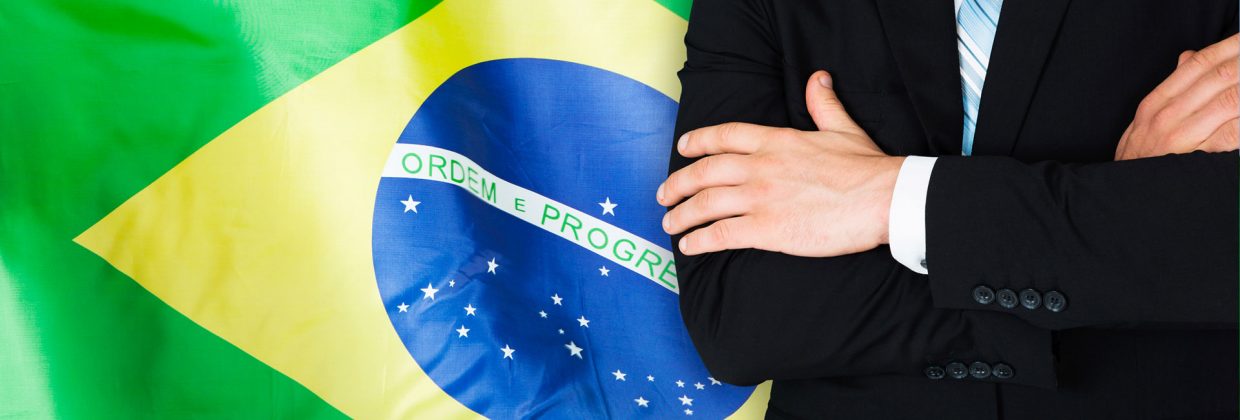A foreigner looking to do business with Brazil should gain some knowledge about its business customs. Gaining an insight about its business environment and language and culture is a good start. However, understanding how to negotiate a deal and being aware of its legal system will be very advantageous.
Business environment
Perhaps the most important change in Brazil’s recent history was the transformation from economic isolation to global integration that took place in the 1990s. The wide-ranging privatisation program, the renegotiation of foreign debt, the signing of the Common Market of the South (Mercosul) Treaty and the extensive import tariff reductions from 1991 to 1993 were the tenets of these changes.
It must be understood from the outset that Brazil is far from the “new frontier”. Many underestimate the strength of its local industry and forget the long-standing presence of multinationals manufacturing and providing services within the country’s borders. Brazil’s Stock Exchange (the B3) is the largest in Latin America and among the most liquid in the world. Excessive bureaucracy, language, cultural differences and a complex legal environment have been, and continue to be, the key hurdles faced by foreigners looking to do business in Brazil. Yet, Brazil’s 200 million-plus population, together with robust financial, agribusiness, IT and mining sectors and its urgent need for infrastructure offer great opportunities for those willing to take on and manage the risks involved and rewards offered.
Language and culture
Although the sophisticated elite, senior executives of large companies and young executives speak some English, Brazilian Portuguese is Brazil’s sole lingua franca. Spanish is mostly understood (and will allow the foreigner to “get by” on the streets) but speaking Brazilian Portuguese, or having a suitably qualified translator, is a definite advantage. Foreigners are generally surprised as to how little English and Spanish (or any other foreign language, for that matter) is spoken in Brazil, especially outside the large State capitals.
Brazilian humour draws substantially from language. Slight nuances between words often carry different meanings and a person’s social standing is generally readily assessed based on his or her grammar and pronunciation.
Few government bureaucrats speak English. Any correspondence in English will almost certainly be ignored, no matter where it came from or how important its content is.
Brazilians are generally more informal than Anglo‑Saxons and northern Europeans. Brazilian business people during meetings will invariably chat about soccer results, their children’s schooling or even politics. Time is rarely of the essence (particularly outside the city of São Paulo), so Brazilians may arrive late for meetings.
Brazilians can become “close friends” very shortly after meeting someone. This is, however, largely a superficial relationship and several hurdles may still have to be faced before a deal being finalised. While a transaction may be concluded in minutes or hours in developed countries, Brazilians may take months or years to make a final decision – but they will hug you, if you are a male, and kiss you once, twice or even three times (depending on the region of the country) on the cheek, if you are a female, when merely saying “hello” or “goodbye”.
Personal connections, “name‑dropping” and recommendations are common and generally encouraged. Even though this can be an advantage in any country, in Brazil it is especially important. On average, Brazilian business people are more susceptible to such tactics than their western counterparts, perhaps as a consequence of mistrust in Brazil’s institutions.
Sarcasm, although present, is much less prevalent than, for instance, in the UK, Australia or New Zealand. Due to cultural differences and translation issues, sarcasm should be avoided as it could dangerously backfire against the person using it.
Brazilians tend to gesture more during speeches and are generally quite loud. What may look like a frantic discussion ready to explode into physical contact, is probably simply an argument as to who was last year’s best soccer player in the State’s soccer league.
Negotiating a Deal
It is very difficult to define a Brazilian “way of doing business”. Brazil is just too big has many regional differences, so there is not be a fit-for-all formula. Therefore, you may consider the following issues when negotiating with Brazilians no more than a rough checklist:
- Do your homework: obtain information on the latest economic, political, sports or news about Brazil and the region that you are visiting;
- Build strong relationships: Brazilians will invariably agree to pay more to those in whom they trust and know personally – try to visit Brazil as many times as you can;
- Think of the long term: it is extremely difficult to make a “quick buck” in Brazil – take your time and consider looking at long-term opportunities;
- Don’t take things at face value: Brazil has high levels of corruption – background checks and due diligence are very useful (and often essential);
- Get good advice: Otto von Bismark once said that only fools learn from experience and that he preferred to learn from the experience of others – obtaining good advice will make you avoid many pitfalls;
- Put things in writing: you cannot rely on your personal relationships alone to do a deal – properly drafted contracts are still the best way to protect your position if the deal goes sour.
Keep in mind that while Brazil has by far the most robust and least corrupt legal system out of the BRIC nations, unfortunately, Brazil is not an easy place to do business. There are some issues that differ quite substantially from the way business is done elsewhere, especially when compared to developed countries.
Legal System
Brazil is a civil law jurisdiction – that is, it follows the Franco-German (also called “Continental European”) legal tradition.
Laws are codified and all but some specific Federal Supreme Court decisions do not have the force of law and are not binding on lower courts in future cases. Brazil has a far-reaching and detailed Constitution and various codes, presidential decrees and regulations that comprise the total body of law.
Brazil is a very litigious nation. Court disputes can (and often do) take over a decade to be finalised. Court proceedings rely heavily on written materials and are very formalistic. Corruption is not rampant in the courts and the justice system is cleaner and more stable than in the other BRICS countries.
Questions?
Contact me if you would like further information. My firm is ready to assist you.











 The site is managed by Fabiano Deffenti, a lawyer admitted to practise in Brazil and Australia, enrolled as a barrister and solicitor in New Zealand and licensed as an attorney-at-law in New York.
The site is managed by Fabiano Deffenti, a lawyer admitted to practise in Brazil and Australia, enrolled as a barrister and solicitor in New Zealand and licensed as an attorney-at-law in New York.